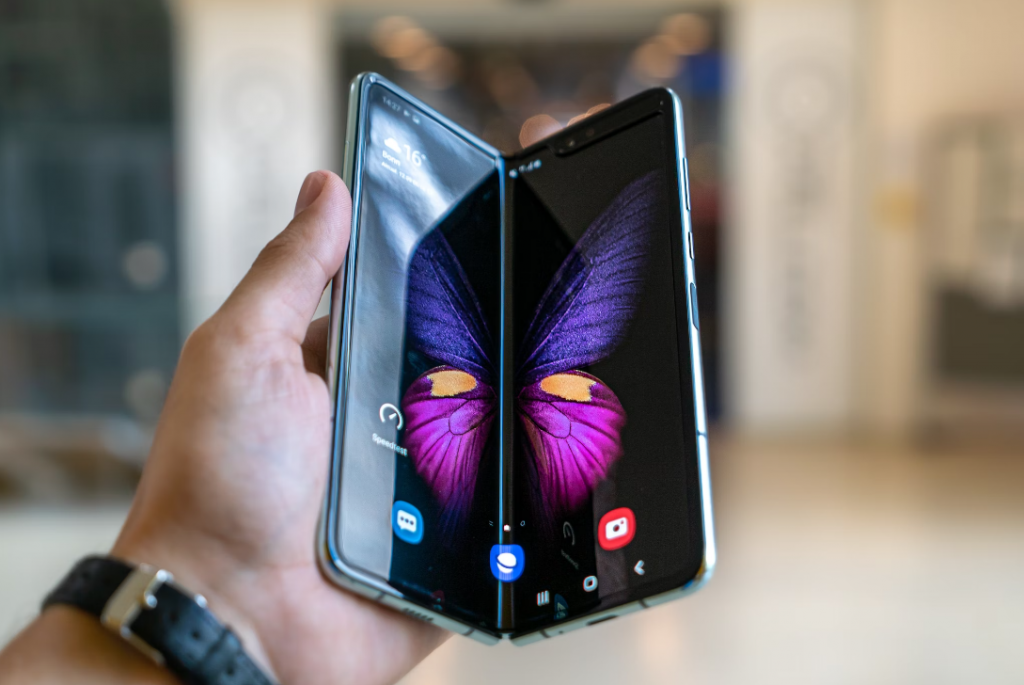In a world where technological innovations seem to materialize overnight, foldable phones have emerged as one of the most intriguing and promising developments in recent years. These devices offer a tantalizing blend of portability and versatility that challenges the conventional smartphone design. As we delve deeper into the realm of foldable phones, we'll dissect their unique features, explore their potential applications, and ultimately address the question on everyone's mind: Are foldable phones the future of mobile technology?

The Evolution of Foldable Phones
To understand the significance of foldable phones, we must first trace their evolution. The concept of a phone with a flexible display has been a longstanding dream in the tech industry. However, it was only in the past decade that this dream started to become a reality.
Companies like Samsung, Huawei, and Motorola have taken the lead in bringing foldable phones to the market. Samsung's Galaxy Fold, released in 2019, was a watershed moment. It showcased a tablet-sized screen that could be folded in half, giving users both a compact phone and a larger display for multitasking.
The Engineering Marvel
Foldable phones are not just a gimmick; they are a testament to the engineering prowess of the tech giants. These devices incorporate cutting-edge materials and designs to ensure durability and functionality. The screens are made of flexible OLED panels, which are not only bendable but also deliver stunning visuals. To protect these delicate displays, manufacturers have developed sophisticated hinge mechanisms that can withstand thousands of folds without any signs of wear and tear.
The Unprecedented Versatility
One of the primary appeals of foldable phones lies in their versatility. They offer users the best of both worlds - the compactness of a smartphone and the spaciousness of a tablet. Need to make a quick call or reply to a message? Simply fold your phone into its smaller form. Want to watch a movie or work on a document? Unfold it for a larger, more immersive screen.
This adaptability opens up new possibilities for productivity, entertainment, and creativity. Imagine seamlessly transitioning from a conference call to a video editing session with a flick of your wrist. Foldable phones are breaking the boundaries between traditional device categories.
Applications Beyond the Obvious
Foldable phones are not limited to expanding screen real estate. They are paving the way for innovative applications across various industries. For instance, in the world of gaming, these devices offer a new dimension of gameplay. The larger display can provide a more immersive gaming experience, and developers are already exploring ways to harness this potential.
Additionally, foldable phones have implications for the healthcare sector. Medical professionals can use these devices to view complex medical images or access patient records more conveniently. The possibilities are endless, and as developers and entrepreneurs continue to experiment, we can expect to see even more groundbreaking applications.
The Road to Mass Adoption
While foldable phones undeniably hold immense promise, they are not without their challenges on the road to mass adoption. The first hurdle is the price tag. These cutting-edge devices come at a premium, making them inaccessible to many consumers. However, as technology matures and production costs decrease, we can expect prices to become more competitive.
Another challenge is durability. Foldable phones, with their intricate hinges and flexible screens, are more susceptible to wear and tear than traditional smartphones. Manufacturers are working tirelessly to improve the durability of these devices, but it remains a work in progress.
The Verdict: Are Foldable Phones the Future?
The answer to whether foldable phones are the future of mobile technology is both complex and exciting. They have the potential to revolutionize how we use and interact with our devices, offering a level of flexibility and versatility that was once inconceivable. As they continue to evolve, addressing their challenges and expanding their applications, foldable phones are poised to become a significant part of our technological landscape.
However, it's important to remember that they are not a one-size-fits-all solution. Traditional smartphones will continue to have their place in the market, catering to users who prioritize affordability and simplicity. Foldable phones are more of a niche product, at least for now.
In conclusion, the future of mobile technology is likely to be a blend of traditional and foldable phones. The latter will serve as a premium option for those who crave innovation and versatility, while the former will remain the go-to choice for the masses. As technology advances and prices become more accessible, the foldable phone market may expand, but it will always coexist with its more conventional counterparts. So, while foldable phones are undoubtedly a glimpse into the future, they are not the sole future of mobile technology.
